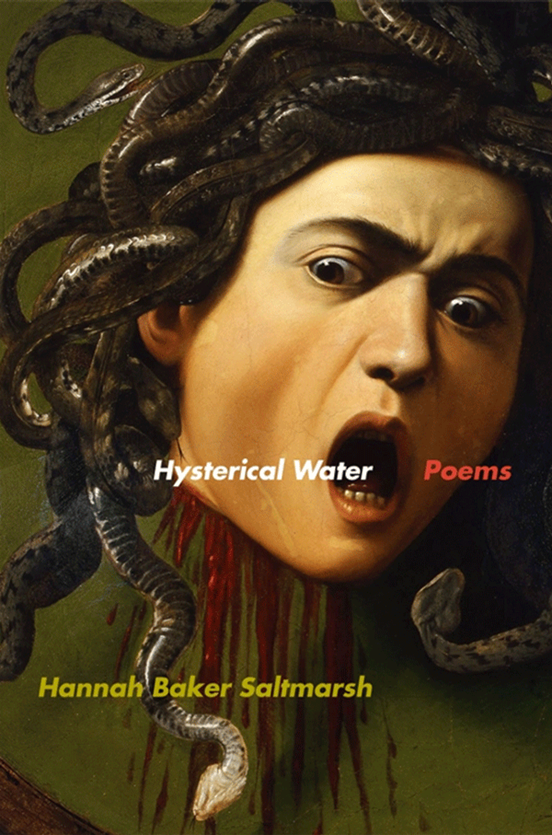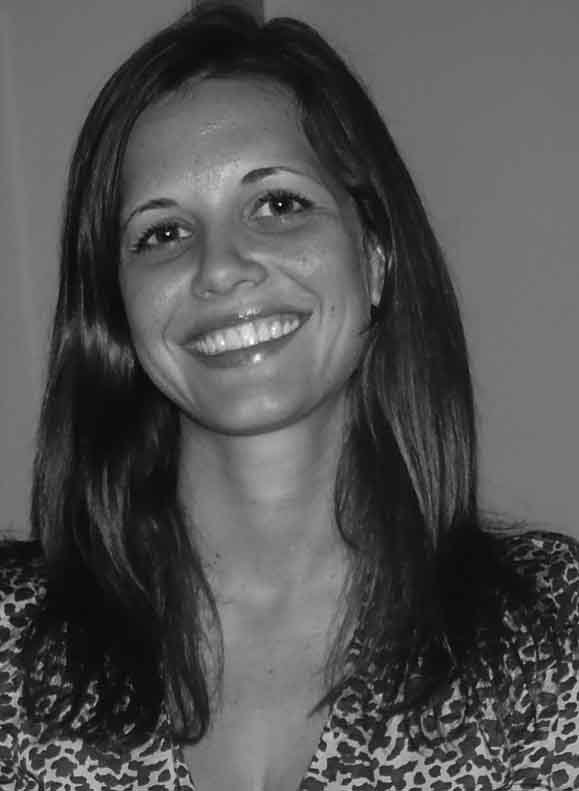Hysterical Inspiration: A Conversation with Hannah Baker Saltmarsh
Hannah Baker Saltmarsh is a poet, essayist, educator, and author of the following books: Male Poets and the Agon of the Mother: Contexts in Confessional and Post-Confessional Poetry (2019) and Hysterical Water (2021). An alumna of the University of Maryland, College Park, and the University of York in the United Kingdom, her poems have been featured in The Yale Review, The Times Literary Supplement, Feminist Studies, The New Republic, The Kenyon Review, and many others.
Hysterical Water, Hannah’s debut book of poems, is a collection that focuses on the term “hysteria” and its connection and historical reference to women. Connecting through the common threads of hysteria and motherhood, Hannah bridges each work with themes of emotion, creativity, sexuality, and female thinking to highlight the dismissal of women being named as hysterical.
Recently, Yellow Arrow Publishing summer intern Vickie Tu interviewed Hannah about her experience as a female writer, her debut collection Hysterical Water, and her inspiration for literature and writing.
What was your inspiration for Hysterical Water?
The book is concerned with the notion that women have been stigmatized and silenced historically as hysterical, and yet being a complicated, sexual, and emotional person seems oddly quite fitting for a poet, so I tried to subvert the sexist idea of hysterical. I was moved and inspired to tell certain stories that were important to me and remain important to me. For instance, I tell stories about my birthing experiences, breastfeeding experiences, and alongside that, I reflect on my own mother’s stories and crucial family stories. Just as important as the confessional, personal threads of the book are also the stories of literary influences, archives, mother-writers, and even less literary forms like cookbooks or letters. Overall, I hope the feminist and maternal joys, rages, and grievances come across!
Why did you decide to write poetry/produce poems?
I began writing poems as a teenager, around age 14. I loved reading poems and had an anthology of “Outlaw Poetry” that I suppose I thought was very subversive and rebellious, with poems by [Allen] Ginsberg and others. Some of the mental health challenges in my family, as well as the typical teenage experiences of big feelings, led me to want to express myself in poems.
What do you love most about writing?
I love the way metaphors or imagery can create a sublime, elating feeling of deep understanding—even if the arrival of the reader is very different than the arrival of the writer. It’s really exciting as a reader to see yourself in the words of another person’s poem, and it’s validating as a writer if a reader can connect to your words. Since poems are windows and mirrors, showing us about very different experiences as well as leading us to better understand ourselves, I love reading widely.
What about your writing is the most unique?
That’s a humbling question, because I have a lot of literary influences, writers like Alicia Ostriker, Lucille Clifton, Audre Lorde, Allen Ginsberg, and many more who have all felt like extremely unique, idiosyncratic voices in my head! I’d like to think that I combine a kind of nerdy, scholarly interest with something very visceral emotionally.
Who is your favorite writer and why?
My favorite novelist is Toni Morrison, whose 11 novels I could reread over and over again, because I love the poetic language and imagery—the way she captivates an internal voice, and the way she explores mother-daughter relationships, family sagas, and women friendships. My favorite poet is too hard to say because I feel that sometimes certain poets feel louder or softer to me, depending on what I’m thinking about and working on or living through at the time—but right now, I’m really digging Adrienne Rich, Audre Lorde, Danez Smith, and Solmaz Sharif.
What are you currently working on?
I’m working on a second manuscript of poems entitled cures for deep wounds. It’s broadly about the intersections of motherhood, climate change, and wellness. I draw from a woman’s literary tradition of cookbooks to look at domestic cures and also reflect on the challenges of those in nurturing roles to care for others and to care for themselves. Especially with the post-Roe era we are now living in, I reflect on the demise of reproductive health care and the way our culture praises mothers yet denies basic healthcare and support. Although there are elegies for people in my life who died during the pandemic and some reflections about how fracturing the pandemic was for mothers, the book also suggests the healing powers of friendship, poetry, and nature. I’m also working on a critical book that is focused on motherhood and second-wave feminisms and have been working on book chapters about writers such as Toni Morrison, Elizabeth Hardwick, Adrienne Rich, and Audre Lorde—I will continue with this project and hope to add more chapters on Grace Paley.
Thank you Hannah for speaking to Vickie about your literary inspiration. You can find Male Poets and the Agon of the Mother at muse.jhu.edu/book/64957 and Hysterical Water at ugapress.org/book/9780820359007/hysterical-water.
Hannah Baker Saltmarsh is the author of the poetry collection Hysterical Water (2021) and a book of literary criticism, Male Poets and the Agon of the Mother: Contexts in Confessional and Post-Confessional Poetry (2019). She is currently working on a second manuscript of poems, cures for deep wounds, and a critical book about motherhood and second-wave feminisms in novels, letters, and poetry. She lives in Virginia with her partner Jay and their three children. She is an alum of the University of Maryland and the University of York in England. You can find her on Twitter @HannahSaltmarsh or Instagram @saltystudebaker.
Vickie Tu is a rising senior at University of Maryland, College Park, studying English with a minor in Classics. She was born and raised in Silver Spring, Maryland, and plans to move to New York City after graduation to start her career in the publishing industry. When she is not reading or working in her campus’ bookstore, she enjoys attending hockey games for her favorite team the Washington Capitals. You can find her on Instagram @vickie.tuuu.
*****
Yellow Arrow Publishing is a nonprofit supporting women writers through publication and access to the literary arts. You can support us as we SPARK and sparkle this year: purchase one of our publications from the Yellow Arrow bookstore, join our newsletter, follow us on Facebook, Instagram, or Twitter or subscribe to our YouTube channel. Donations are appreciated via PayPal (staff@yellowarrowpublishing.com), Venmo (@yellowarrowpublishing), or US mail (PO Box 65185, Baltimore, Maryland 21209). More than anything, messages of support through any one of our channels are greatly appreciated.

